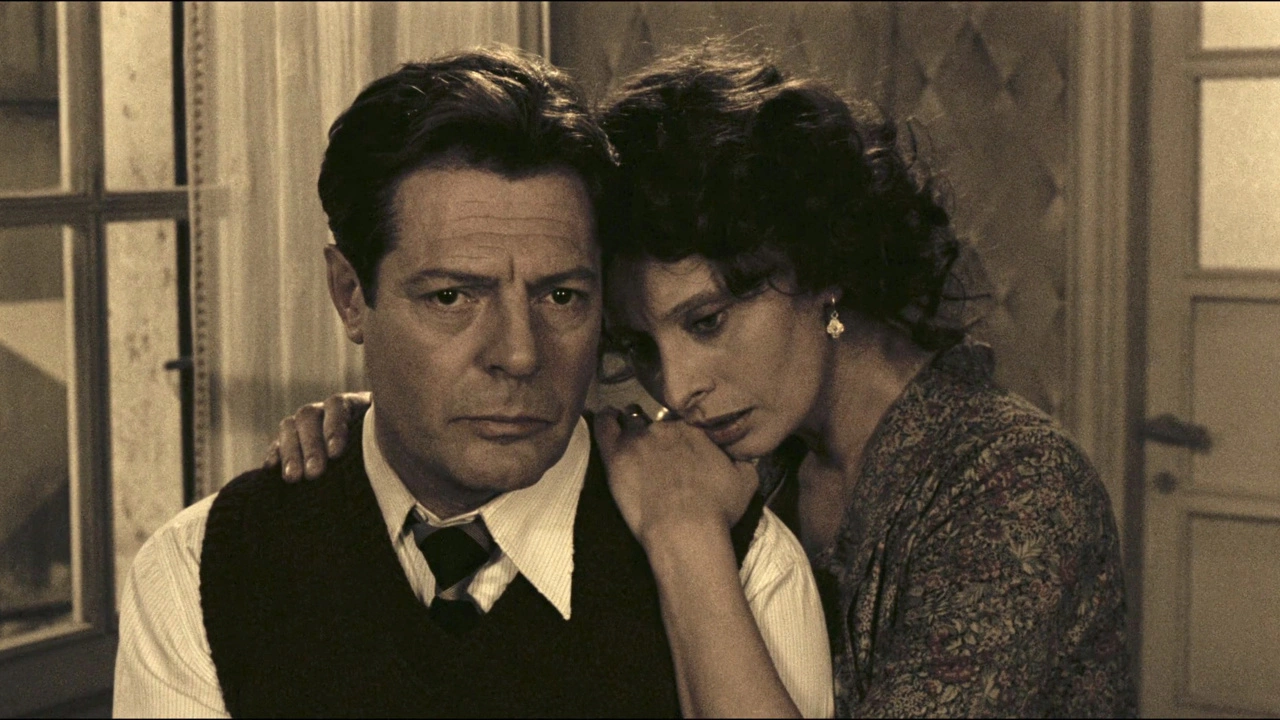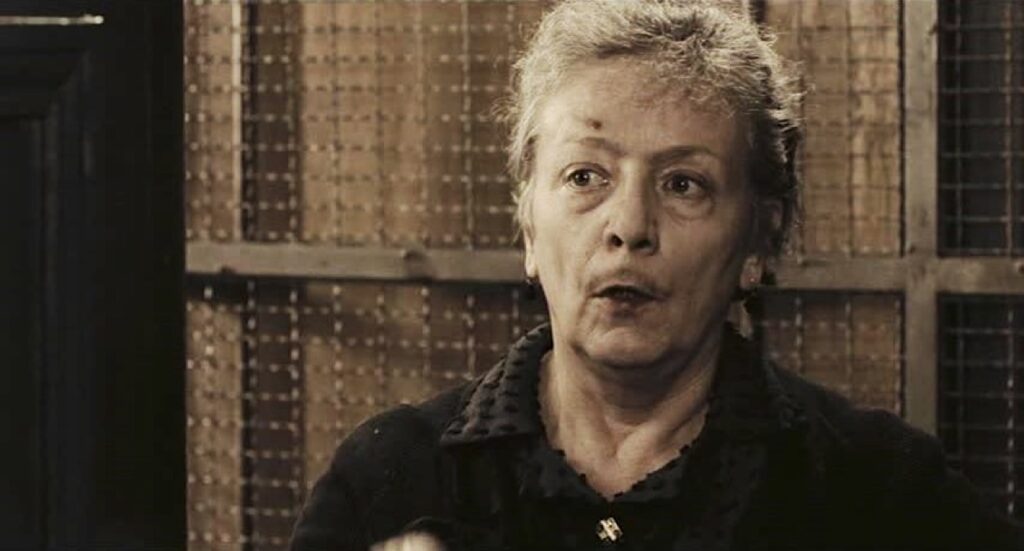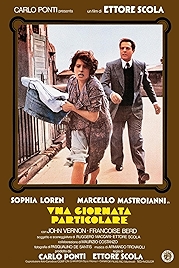Sophia Loren and Marcello Mastroianni appeared in many films together, but in 1977’s A Special Day they both play against type – she’s the dowdy housewife rather than the glamour bomb, he’s a gay man rather than the straight Italian lover, two characters thrown together after pretty much everyone else in their apartment block has rushed out into the streets hoping to catch sight of the Führer or Il Duce on the day that Hitler visited Mussolini in 1938.
They may live in the same block but Antonietta and Gabriele have never met. She’s always too busy looking after her six kids and husband (John Vernon), and he’s always at work. Or always was at work. Recently he’s been fired for being a homosexual. Now, on his last day in Rome he waits in his apartment, toying with the idea of killing himself. Later, shadowy men will arrive to take him to Sardinia, which is where deviants like him are being sent to.
Then Antonietta comes knocking on his door, looking for her escaped myna bird. They get chatting. She’s a fan of the Italian dictator, it turns out, and he’s a liberal but in spite of their differences, a strange – special – relationship develops between these two left-behind people. Ideologically opposed, they nevertheless realise they envy each other. He yearns for the stability and companionship of her large family; she wants his freedom.
Throughout this unusual two-hander, in the background are the sound of the parades, the loudhailers in the streets, people singing patriotic German and Italian songs. Occasionally the concierge (Françoise Berd) will stick her nose in, to make sniffy remarks about Gabriele and to suggest that “his sort” will do no good for Antonietta’s reputation.
Director Ettore Scola starts with a majestic shot gliding over the outside of the block before eventually sliding through Antonietta’s kitchen window. From here it’s Mastroianni and Loren and the camera, all three sliding around each other elegantly while the two characters thrust and parry. At one point Antonietta makes the mistake of thinking that Gabriele fancies her, and makes a fool of herself. Angry, she charges off, only to return for what is a surprising turn of events in the film’s second half.
Mastroianni is as subtle as a surgeon, as ever. Loren, saddled with that face, and that figure (“Everything you see I owe to spaghetti,” she once allegedly quipped), isn’t often credited with being able to act but she’s fantastic here, as a woman who is little more than a drudge, a prisoner in her own home.
Strangely, considering it’s Hitler and Mussolini outside in the streets, and given that Scola starts the film with a full eight minutes of archive newsreel footage from the state visit, this isn’t a political film with a capital P. Instead it’s the role of the marginalised in a heterosexual male society that’s in the frame. At one point Antonietta mentions that with one more child she’ll be eligible for a government cash payout. Gabriele, as a single man, is forced to pay the “bachelor tax” – in this country, under this regime, producing children is a heroic deed, not producing them is a crime.
Influenced by that opening newsreel in sturdy black and white, Scola shoots everything with the colours so muted that they’re almost sepia. Even the shocking red of the Nazi flag draped over the apartment block balcony barely registers.
You might wonder why John Vernon is in it. Canadian money behind the film is the answer – Vernon was Canadian and all his lines are dubbed. More intriguing is the presence of Il Dulce’s grand-daughter, Alessandra Mussolini, as Antonietta’s daughter. Loren’s sister married Benito Mussolini’s son and Alessandra is their daughter. Presumably Aunt Sophia pulled a string. That Alessandra would go on to become a right-wing politician adds a little frisson, but really she’s in it so little it barely makes any difference.
A Special Day – Watch it/buy it at Amazon
I am an Amazon affiliate
© Steve Morrissey 2023


